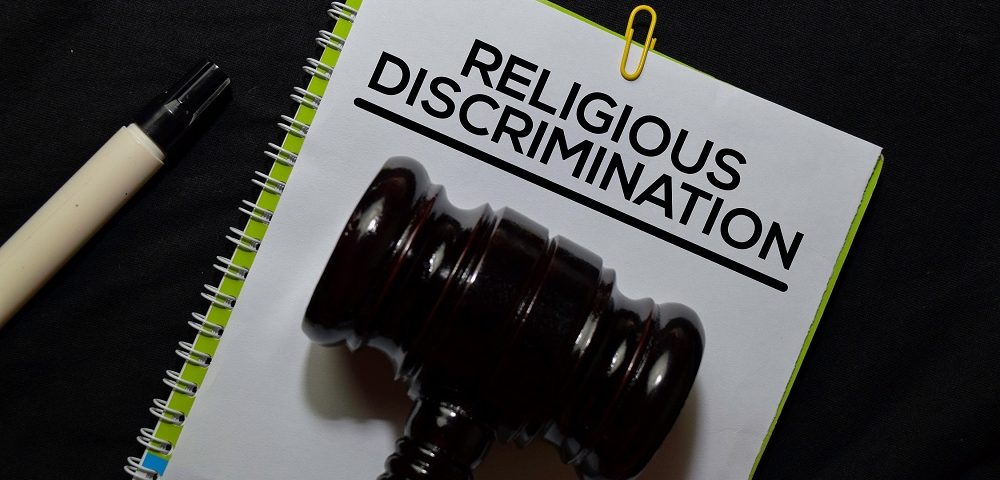Employee Rights During Religious Holidays

How the Pregnant Workers Fairness Act Is Changing the Workplace
October 10, 2024
Addressing Age Discrimination in The Workplace
December 9, 2024Businesses are getting more and more diverse these days, so employers are seeing more and more requests for religious accommodations, especially when religious holidays roll around. It can certainly be challenging to deal with these requests, but failing to comply with federal and state laws can result in legal liability. I’m Ty Hyderally, an employment law attorney licensed in NJ and NY, so I’ve seen a lot of cases regarding religious discrimination, religious accommodation, and sexual harassment complaints. Believe me when I say that understanding your obligations as an employer under Title VII of the Civil Rights Act of 1964 is crucial to avoid religious discrimination claims. At my firm, Hyderally & Associates, we specialize in helping employers navigate these legal requirements so they can stay compliant.
Understanding Religious Accommodation Laws
Under Title VII, employers must provide reasonable accommodations for employees’ sincerely held religious beliefs unless doing so creates an “undue hardship” for the business. This may include time off for religious holidays, prayer breaks, or modifications to an employee’s work schedule. Title VII protects a broad range of religious practices, and courts don’t usually question the legitimacy of an employee’s religious belief. Recent updates to legal interpretations have made compliance even more critical for employers.
The Supreme Court’s decision in Groff v. DeJoy (2023) clarified the “undue hardship” standard for religious accommodations, making it more difficult for employers to deny requests. The Court ruled that employers must now show that accommodating an employee’s religious beliefs would impose a “substantial” burden on the business, moving away from the previous standard that required only a minimal burden. This shift places a greater responsibility on employers to prove undue hardship.
Common Challenges and Accommodation Requests
When employees request time off for religious holidays, it can disrupt business operations, especially if you have several employees who observe different religious practices. Employers must balance the need to accommodate these requests with the operational requirements of their business. For example, an employee may request time off for Christmas, Yom Kippur, or Eid al-Fitr, or may need their schedule adjusted to observe the Sabbath.
Some of the most common accommodation requests include:
- Time off for religious holidays: Employees may seek unpaid leave or use their vacation time to observe holidays that are important to their faith.
- Modified work schedules: In some cases, employees may request to work different hours to avoid conflicts with their religious practices, such as avoiding Sunday shifts for Sabbath observance.
- Prayer breaks: Employees might ask for breaks during the day to engage in prayer or other religious rituals.
- Dress/grooming code exceptions: Employees may need exceptions to established company dress or grooming codes for religious reasons, such as a Muslim woman that wears a hijab.
Title VII Religious Accommodation Compliance
Employers should take a proactive approach to comply with Title VII religious accommodation requirements. Here are several best practices that can help avoid religious discrimination claims:
- Review requests on a case-by-case basis: Each accommodation request should be looked at on an individual basis, taking the employee’s needs and the potential impact on business operations into account.
- Engage in interactive dialogue: Employers should work with their employees to explore possible accommodations that work for both parties. Open dialogue can often lead to creative solutions that allow the employee to observe their religious practices with minimal burden to the business.
- Maintain documentation: Keeping records of accommodation requests and the steps taken to address them is vital. If there are future legal challenges, documentation like this can serve as evidence.
At Hyderally & Associates, we regularly counsel employers on how to handle religious accommodation requests while making sure they’re complying with the law. We assist in crafting policies that allow for flexibility without compromising business operations.
Avoiding Religious Discrimination Lawsuits
The potential for religious discrimination lawsuits is one of the most serious risks an employer can face. Failing to accommodate an employee’s religious beliefs, or treating an employee unfavorably because of their religion, can lead to costly legal disputes.
The Supreme Court’s ruling in Groff v. DeJoy demonstrated how important it is for employers to take religious accommodation requests seriously. Employers who deny a request need to meet a higher standard of proof that the accommodation would impose a significant burden. Failure to do so could result in a lawsuit for violating Title VII.
A leading religious accommodation lawyer in New Jersey recommends that employers need to look at religious accommodation requests carefully. They need to make a good-faith effort to accommodate the request, document those efforts, and if they deny the request, the employer needs to make sure that decision is well-supported by evidence of undue hardship.
Accommodating Religious Holidays in the Workplace
Employers must understand the nuances of accommodating religious holidays in the workplace is essential to stay in compliance and keep their work environment respectful. Some steps employers can take include:
- Creating a clear religious accommodation policy: Having a well-documented policy that outlines the process for requesting religious accommodations helps set clear expectations for employees and managers.
- Training managers: It’s essential that management is trained to recognize religious accommodation requests and knows how to handle them appropriately.
- Offering flexibility: Where possible, employers should allow employees to swap shifts, work from home, or take unpaid leave to observe religious holidays.
As an experienced employment law attorney in New York and New Jersey, I’ve seen many businesses get sued for failing to provide religious accommodations. You don’t want that. This can be avoided by proactively addressing these requests and demonstrating a willingness to accommodate.
The Impact of Religious Accommodations
In today’s diverse work environment, ensuring Title VII religious accommodation compliance is critical. Employers need to be able to accommodate employees’ religious beliefs, especially during religious holidays. Failure to do so can result in lawsuits and damage to a company’s reputation. At Hyderally & Associates, we’re committed to helping employers understand their legal obligations and implement effective policies to avoid religious discrimination claims.
If you need assistance with undue hardship standard religious accommodation or any other employment law matter, contact Ty Hyderally for expert guidance. We’re here to help you navigate the complexities of religious accommodations and ensure your business remains compliant with federal and state laws.
Resources:
https://www.eeoc.gov/laws/guidance/what-you-should-know-workplace-religious-accommodation


